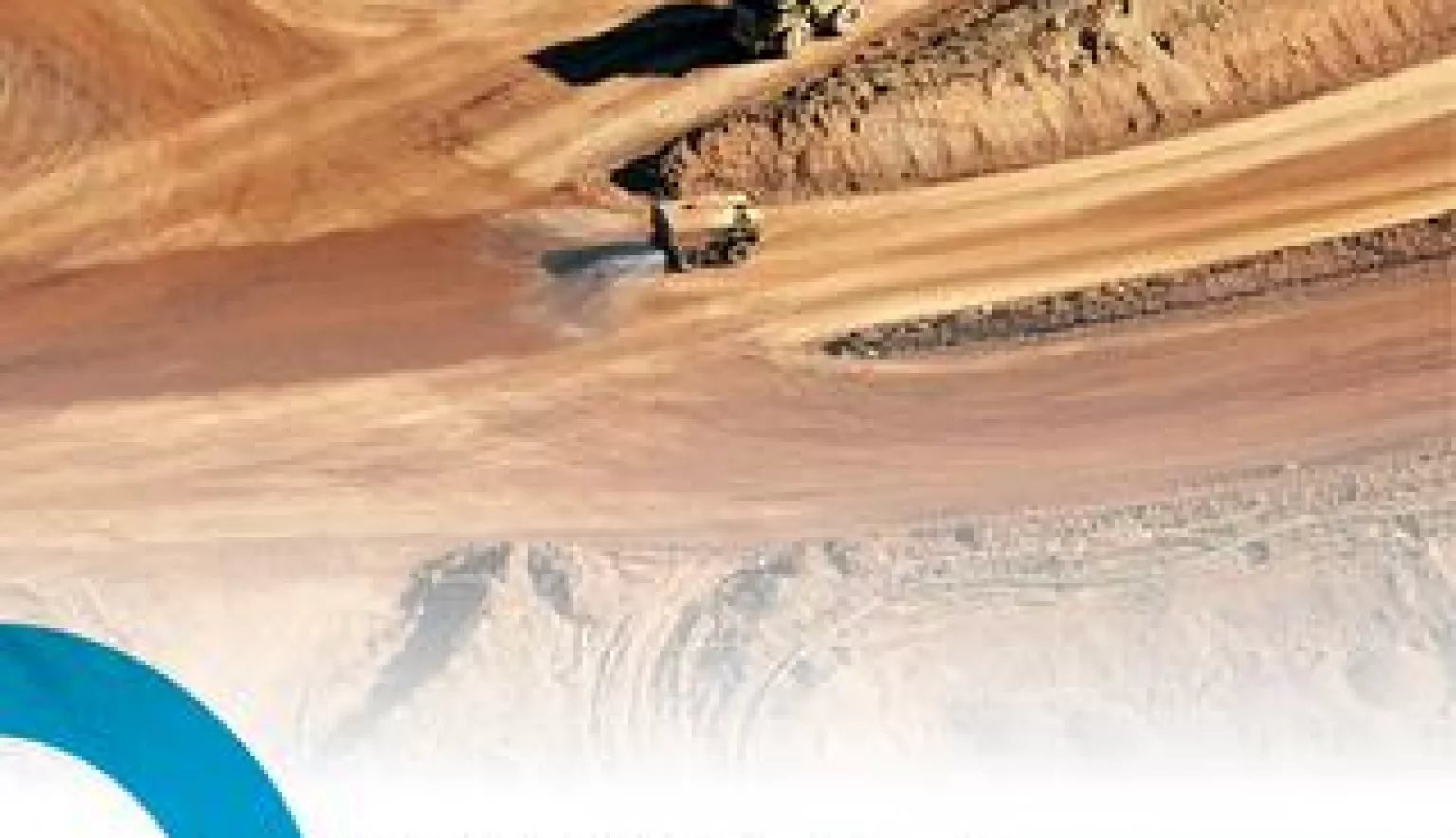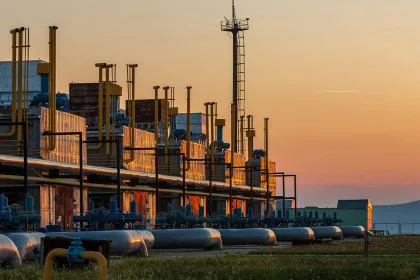Innovation is the guiding principle at Atlas Copco, which drives engineers and designers to develop new technology and revolutionise productivity in drilling, manufacturing and other industrial processes.
SUSTAINABLE PRODUCTIVITY ON A GLOBAL SCALE
Atlas Copco Sweden has been a world leading provider of sustainable industrial productivity solutions for over 140 years. The Group serves customers with innovative compressors, vacuum solutions and air treatment systems, construction and mining equipment, power tools and assembly systems. The world-renowned company develops products and services focused on productivity, energy efficiency, safety and ergonomics. Founded in 1873, Atlas Copco is based in Stockholm, Sweden, and has a global reach spanning more than 180 countries. In Q3 of 2014, the Group recorded revenues of SEK 23.6 billion ($3.3 billion) and currently have more than 40,000 employees.
With a tradition of innovation dating back to the Group’s founding in 1873, the core business remains much the same, with today’s equipment delivering an unparalleled level of efficiency. This level of customer dedication and timely delivery is accompanied by the Group vision; to become and remain First in Mind-First in Choice® of its customers and other key stakeholders. To this end, Atlas Copco continuously searches for external partnerships to build long-term relations with inventors, customers, suppliers, academia, research companies and institutes. So, collaboration is an important key element in the company’s innovation process in order to meet customer demands.
THE FOUR TECHNOLOGICAL AREAS
Atlas Copco’s history of product development in its four main technological areas dates back to the turn of the last century, when the company’s first compressors, pneumatic tools, rock drills and breakers were launched.
Today’s products are immensely more efficient than previous generations. The relative cost of energy for air compression is a fraction of what it was when Atlas Copco’s first piston compressor was launched in 1904. Rock drilling has become roughly 100 times quicker during that same period, while tools and construction equipment can be used for significantly longer periods thanks to new ergonomic features which improve safety for the operator and productivity for the customer.
SALES AND SERVICE
Atlas Copco’s ambition is to have close relationships with all customers and to help them increase their productivity in a sustainable way. As such, sales and services are primarily direct, but are complemented by alternative sales channels, such as through distributors, in order to maximise market presence. The Group has sales in more than 180 countries and about 80% of sales are made directly to the end user, this is a result of an excellent reputation on the global stage, lovingly built up over the years. “Our sales force consists of engineers with strong knowledge about the work that needs to be done and who have the ambition to offer the best solution for the customer’s specific application. The offer also includes service and maintenance performed by technicians. In each business area we have a dedicated division responsible for service. The responsibility includes development of service products, sales and marketing, technical support as well as service delivery and follow up,” the website explains.
More than 40% of the company’s revenue is generated from the service arm of the business (spare parts, maintenance, repairs, consumables, accessories, and rental). These revenues are more stable than equipment sales, which makes this portion of the business crucial to the company.
SUSTAINABILITY AND CUSTOMER FOCUS
Atlas Copco’s mission is to achieve sustainable, profitable development and subsequently, sustainability plays an important role in Atlas Copco’s vision. An integrated sustainability strategy, backed by ambitious goals, helps the company deliver greater value to all its stakeholders in a way that is economically, environmentally and socially responsible. “Commitment to sustainable productivity is our brand promise. This is a promise to ensure reliable, lasting results with a responsible use of resources – human, natural and capital,” the website states.
The goals that were introduced in 2011 all aim at continuously delivering sustainable, profitable development. By integrating sustainability into Atlas Copco’s customer-focused and operational goals, Atlas Copco can reduce costs, mitigate risks and create business opportunities. The Group creates a positive impact on society and the environment, which in turn positively affects Atlas Copco’s financial bottom line – thus, creating shared value. Atlas Copco uses this win-win concept to increase sales, make sound investments and generate economic value.
HEALTH, SAFETY AND ENVIRONMENT
The concern for safety and for the environment is more prominent today throughout the world than ever before. To this end, Atlas Copco, as a world leader in the mining and construction industry, is deeply committed to improved safety and environmentally responsible initiatives as the website emphasises: “Safety and the environment are the two most important considerations in every decision we make, today and in the future. Atlas Copco’s concern for safety and the environment are essential components underlying our commitment to sustainable productivity.”
Similarly, Atlas Copco’s main environmental impact is during the use of its products according to life-cycle analyses. Therefore, incorporating life-cycle perspective and environmental considerations into new product design is a goal and a high priority. The target is to implement environmental management systems in all operations. All product companies and major customer centres must be certified according to the international standard on environment, the ISO:14001.
It is also important to highlight that life-cycle analyses show that the most significant environmental footprint is related to carbon dioxide emissions during the use of the products and to a lesser degree, during transport and in production. Energy consumption and carbon dioxide emissions are the most significant indicators, but Atlas Copco also tracks and reports performance on water consumption and waste.
The company recognises that climate change and emissions are serious environmental concerns. As such, their goal is to reduce the carbon dioxide emissions from the energy used in operations and from transport of goods by 20% by 2020 in relation to cost of sales. Many major production units have invested in renewable energy sources, which has resulted in reduced carbon dioxide emissions.
Atlas Copco’s energy-efficient products are continuously developed and improved to reduce emissions. For example a variable-speed drive compressor can reduce a customer’s energy consumption and related carbon dioxide emissions by up to 35%, saving the environment and reducing energy cost. The rental operation continually works to switch its rental fleet to more environmentally sound equipment to reduce its carbon footprint. Atlas Copco is using cooling agents in some products and processes. However, all cooling agents used for products have a zero ozone-depleting impact. Overall, the company goal is to avoid creation of waste and that all waste is reused or recycled. Atlas Copco tracks various categories of waste from the production process, including regulated or hazardous waste. Metal scrap represents the most significant fraction of waste, and nearly all of this scrap is reused or recycled.
INNOVATION
“At Atlas Copco, we are convinced there is always a better way of doing things,” cites the website. Innovation and product development are very important for the Group. A key activity is to design new or improved products that provide tangible benefits in terms of productivity, energy efficiency and/or life cycle cost to the customer and, at the same time, can be efficiently produced. Atlas Copco protects these technical innovations with patents.
This innovation also includes better processes to improve the flow and utilisation of assets and information. Consequently, this will improve customer satisfaction and contribute to strengthening customer relations, the brand, as well as the company’s financial performance.
“There is always a better way” – For more than a century this guiding principle has driven Atlas Copco’s engineers and designers to develop new technology and revolutionise productivity in drilling, manufacturing and other industrial processes. Hence, many of the Group’s products have become global success stories.
Accompanying his mantra is a team of around 2,500 employees conducting research, design and development at dozens of sites around the world, Atlas Copco’s Group R&D hubs are located in Sweden, Belgium, India and China, but there are some smaller R&D operations in many other countries as well. As a globally recognised and respected company, Atlas Copco can be rest assured that their market-leading position can be sustained over the next decade and beyond.





























